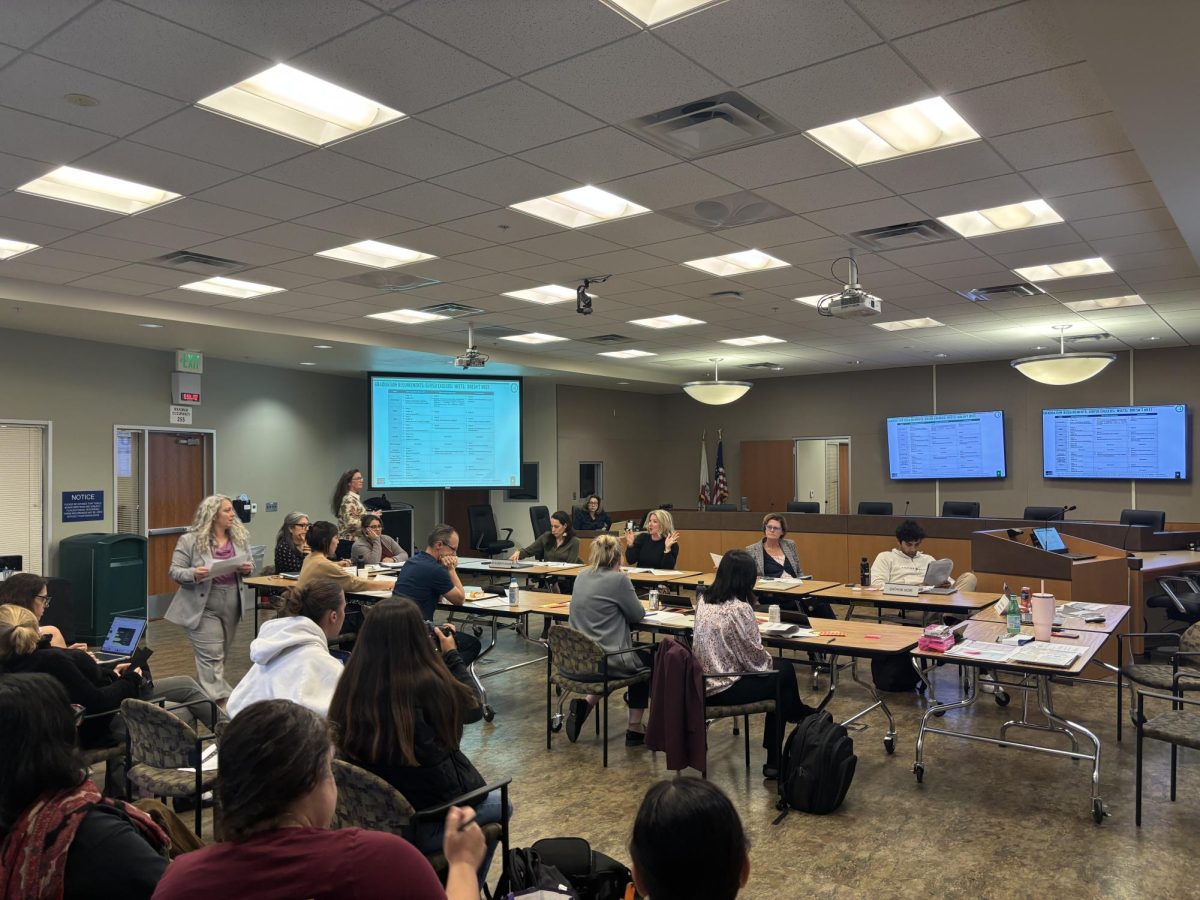The idea of the metaverse has been around since 1992, but in recent years it has picked up speed and begun to shape into a reality.
The metaverse is the concept of an entirely new world created virtually. Things like connecting with friends, going to work, playing video games, going shopping, and anything else that is possible in the real world will be possible in the metaverse. Complete submersion into the world is possible with advanced technology and it is meant to feel completely real. Rather than “living” virtually being a hobby, or activity, it would become a lifestyle; the idea is that everyone would be involved with it in the future.
Some well-known additions to the metaverse are Roblox, Fortnite, and the movie “Ready Player One.” These all share the same concept of linking people online in a virtual world. There are many different benefits and disadvantages when talking about the metaverse given that it’s such a revolutionary idea, but nonetheless, people are very drawn to it.
“The ideas sound romantic,” Woodside Spanish teacher, Margaret Thomsen said. “Visiting new places, and talking to people from across the world, but the reality could be full of advertisements and bombarding people with negative messages.”
The possibilities of what could go wrong with the metaverse are endless, but so are the possibilities of what could go right.
“The pros of the metaverse [are] we can continue to work remotely, we can have better interactions as far as meetings go, and it’d be more fun as far as having get-togethers with friends and what-not,” Jaime Gonzalez, Woodside P.E. teacher said.
With entire lives being online there are much more risks when it comes to spreading information and ideas on such a wide-reaching network. Infinera, the leading long-distance internet equipment manufacturer that provides network and equipment for sending data for the metaverse and everything else on the internet.
“The biggest concern right now is fake news being posted by trolls through social networking,” Mark Schaeffer, the senior security architect at Infinera said. “I think the metaverse is going to make it worse. We can start messing with people’s minds, and it is extremely dangerous, especially to the younger generation.”
The metaverse is a radical concept, and although there are many people who are quick to jump on board, there are also a lot of skeptics and objectors.
“Older demographics won’t utilize it as much as younger people will utilize it,” Gonzalez said. “The initial reaction is going to be like anything else that’s new. People typically don’t do well with change so they will say ‘oh, this is going to be terrible.’ That’s what they said about the internet and the internet has revolutionized the world.”
The new generations have brought about a whole new craze for online connections whether it be through video games or social media.
“Young people who are isolated, I think they’re going to jump all over this,” Schaeffer said.
There has been lots of speculation on how the metaverse will impact mental health with people being so cut off from reality.
“It worries me that we are building towards fine-tuning these online connections and not interpersonal face-to-face interactions because that’s what we’re put on earth to do,” Thomson said. “That’s why I’m a language teacher. I love connecting with people.”
Social networks like Instagram, Youtube, and Facebook have been connecting people all around the world for years.
“I think [the metaverse] will make [social networking] worse. Honestly, people are depressed enough on social networks and they’re wasting so much time on social networking now this is going to make [social networking] worse,” Schaeffer said.
Technology can be overused and has always been heavily criticized for it.
“It’ll be like anything else that could be addicting; people will overuse technology,” Gonzalez said.
Gonzalez pointed out that it has to be executed well to be successful and win people over.
“Video games will have to be better than watching TV, meetings will have to be more effective than being in a zoom meeting, and family conferences, feeling like you’re right there with your loved ones and friends,” Gonzalez said.
Many different corporations are working on developing the metaverse like Facebook, Amazon, and Microsoft. Facebook recently changed its company name to Meta and all these companies have invested billions of dollars into chasing the metaverse dream.
“Big companies, because of how much power they have in our capitalistic society, would be able to write the rules . . . it’s going to be companies who decide what my students do with their time, how good they feel about themselves, what messages they’re getting, what types of people they’re seeing,” Thomson said.
Facebook has a reputation of pushing advertisements and fake news on its users. With Facebook playing such a big role in the metaverse people are concerned about whether or not they’ll do the same.
“I don’t think Facebook is gonna control [the metaverse],” said Schaeffer. “I don’t think Facebook is gonna win in every market segment . . .right now Facebook is already on the downslide. People are already pissed off at Facebook. They don’t trust them, they don’t like Mark Zuckerberg. The young generation doesn’t even use Facebook.”
However, the metaverse can’t function without any company interference, because normal users wouldn’t be able to maintain it.
“[The metaverse] will be very company driven because you need the hardware and software . . . and that’s gonna take a tremendous amount of cloud space,” Gonzalez said. “The crypto will play a huge role in that because they are more easily transmittable within those technologies.”
It’s impossible to say whether or not this is just another good proposal or if it will be a groundbreaking new era of human life.
“It’s gonna be worth trillions in the future,” Gonzalez said. “You see how popular Facebook is already. You see how popular Zoom is? Do you see how popular these digital interpersonal technologies are? I think this is gonna be the next level of it.”
The metaverse will essentially put an end to or at least slow down real-life relationships.
“I don’t want meta to decide what the parameters of human connection are,” Thomson said.









